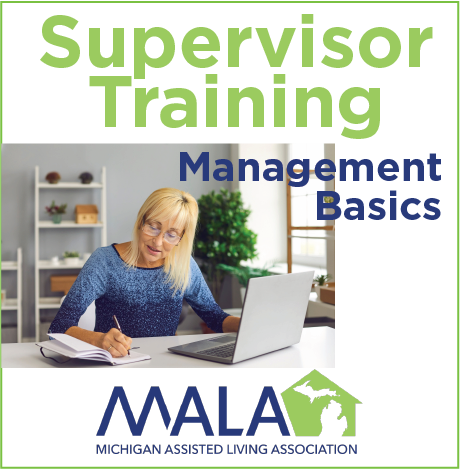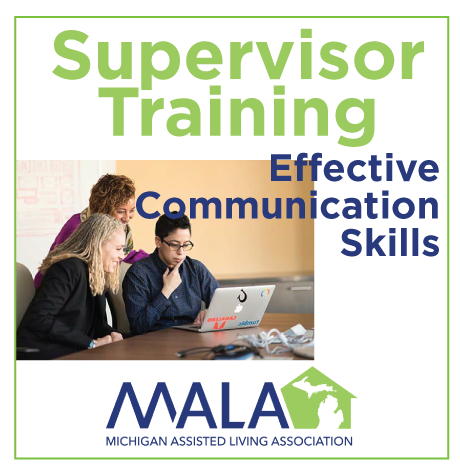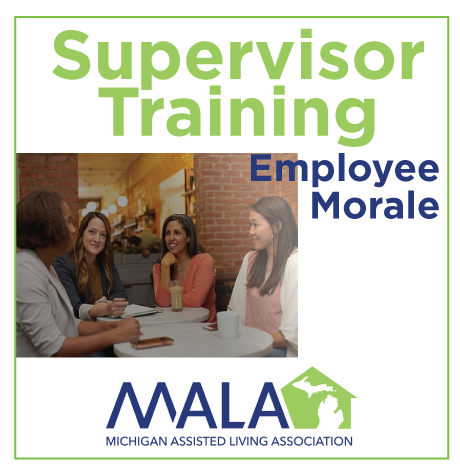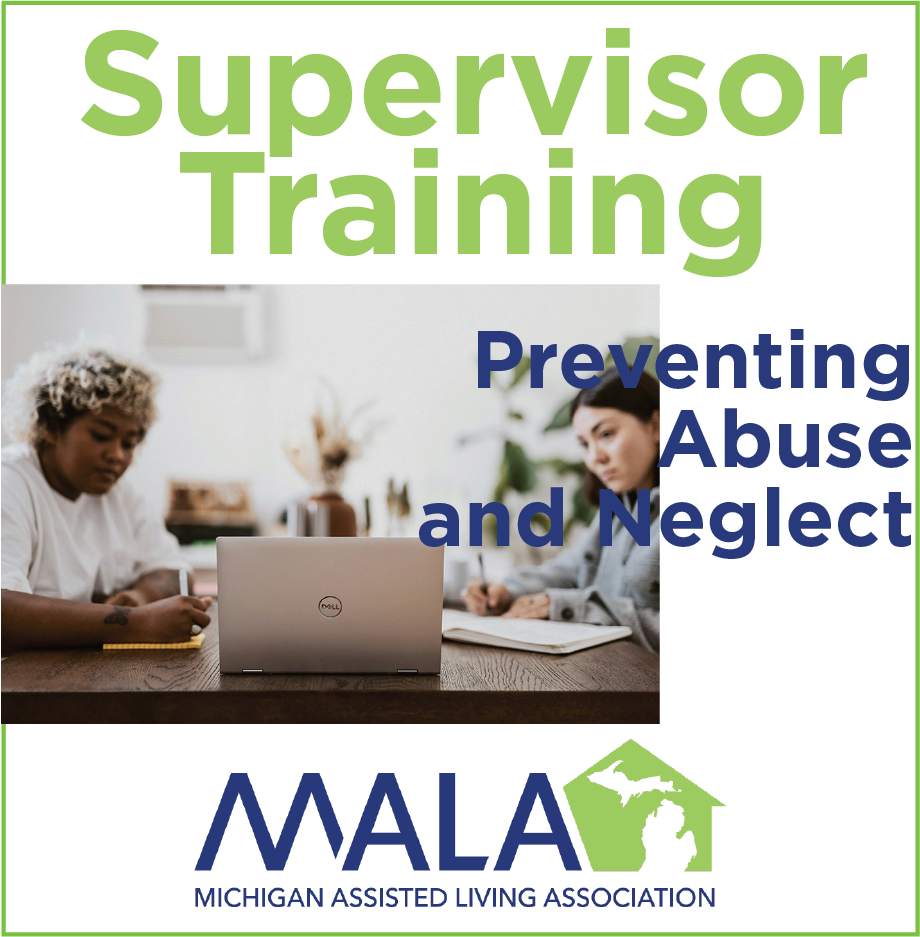Welcome back to your MALA Learner Dashboard. You will find the courses you’re enrolled in, your progress in each course and a continue study button. You may return to your course where you left off by selecting the course and then selecting the course start button on the next screen.
Supervisor Training Courses Available:

Supervisor Training Management Basics
Newly hired supervisors, newly promoted individuals, current supervisors, and persons on track for career advancement benefit from professional development that follows a structured path. First-Line Supervisors often have little management experience. As a result, they tend to emulate their last supervisor or utilize other life experiences that may not align well with the requirements of supervising staff in an Assisted Living or other Community-Based setting. This course intends to provide a practical guide to managing staff, beginning with outlining the areas where supervisory training is needed. A properly trained First-Line Supervisor can improve care outcomes and lower expenses by decreasing staff turnover.

Supervisor Training
Communication Skills
First-Line Supervisors need to communicate with stakeholders regularly. Supervisors are consistently gathering and sharing information. The benefits of communicating effectively will be examined. A framework of proactive communication strategies will be reviewed to manage efficient and effective communications with key stakeholders. First-line supervisors will develop the confidence to manage challenging communications as well as the skills to convey information to their supervisor. Good communication is the key to being a successful First-Line Supervisor.

Employee Morale
Good employee morale is the very essence of a proactive management approach. First-line supervisors will learn to identify what actions they can take to sustain morale. Specific examples of interacting with staff proactively will be explored. A shift structure to ensure care objectives are met in the most efficient manner will be presented. Detailed plans for running a morale-lifting and educational staff meeting will be discussed.

Preventing Abuse and Neglect
Reducing the incidents of abuse and neglect requires regular work tending to the organization’s culture. The First-Line Supervisor position is arguably one of the most influential in the organization’s culture. This work needs to occur daily, not just when an incident of abuse or neglect occurs. When a Care Philosophy is in place, it is easier to identify the red flags signaling the risk of abuse and neglect. Being able to recognize and analyze the red flags can lower the likelihood of an abuse or neglect incident.
Additional Training Courses Available

Understanding Dementia
This course is designed to provide you with an overview in Understanding Dementia! Whether you have been working with supporting people living with dementia for numerous years or you are just getting started, this training will provide you with resources that you can apply immediately, and will result in improving the care that you deliver.

